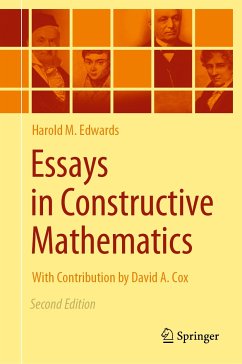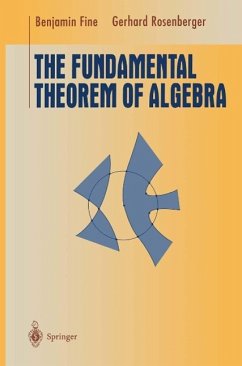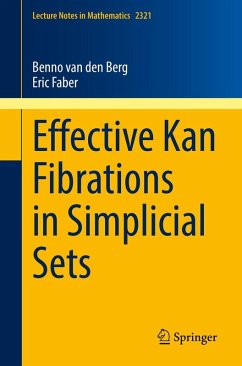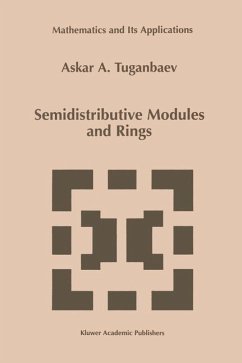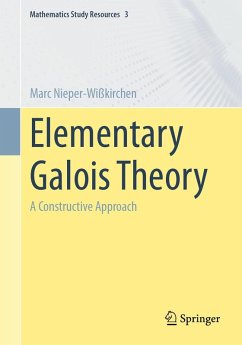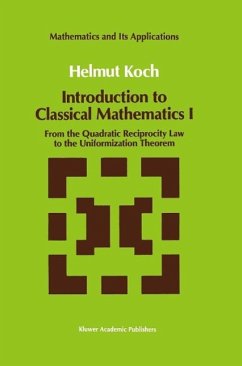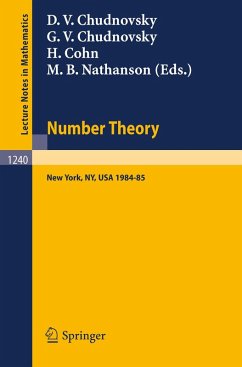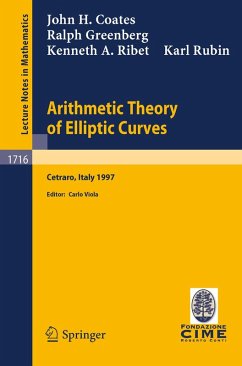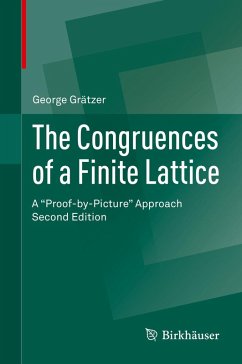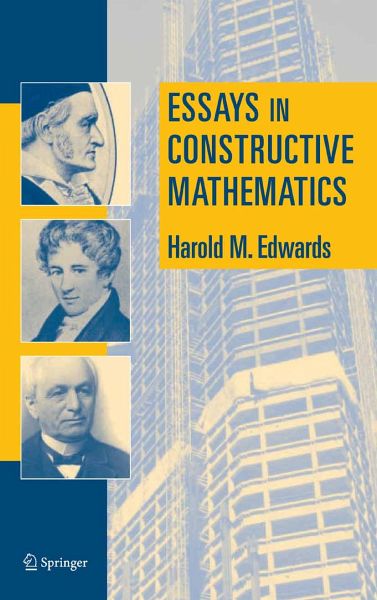
Essays in Constructive Mathematics (eBook, PDF)
Versandkostenfrei!
Sofort per Download lieferbar
Statt: 117,69 €**
96,95 €
inkl. MwSt.
**Preis der gedruckten Ausgabe (Gebundenes Buch)
Weitere Ausgaben:

PAYBACK Punkte
48 °P sammeln!
This book promotes constructive mathematics not by defining it or formalizing it but by practicing it. This means that its definitions and proofs use finite algorithms, not `algorithms' that require surveying an infinite number of possibilities to determine whether a given condition is met. The topics covered derive from classic works of nineteenth century mathematics - among them Galois' theory of algebraic equations, Gauss's theory of binary quadratic forms and Abel's theorem about integrals of rational differentials on algebraic curves. For Abel's theorem the main algorithm is Newton's poly...
This book promotes constructive mathematics not by defining it or formalizing it but by practicing it. This means that its definitions and proofs use finite algorithms, not `algorithms' that require surveying an infinite number of possibilities to determine whether a given condition is met. The topics covered derive from classic works of nineteenth century mathematics - among them Galois' theory of algebraic equations, Gauss's theory of binary quadratic forms and Abel's theorem about integrals of rational differentials on algebraic curves. For Abel's theorem the main algorithm is Newton's polygon, which is given a full treatment. Other topics covered include the fundamental theorem of algebra, the factorization of polynomials over an algebraic number field, and the spectral theorem for symmetric matrices.
Dieser Download kann aus rechtlichen Gründen nur mit Rechnungsadresse in A, B, BG, CY, CZ, D, DK, EW, E, FIN, F, GR, HR, H, IRL, I, LT, L, LR, M, NL, PL, P, R, S, SLO, SK ausgeliefert werden.



